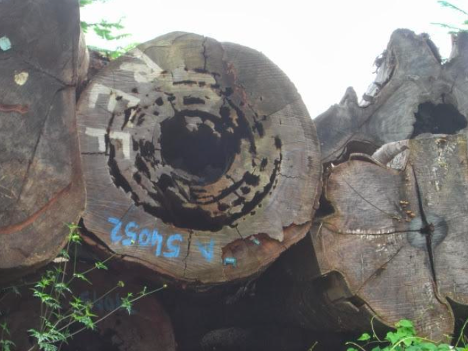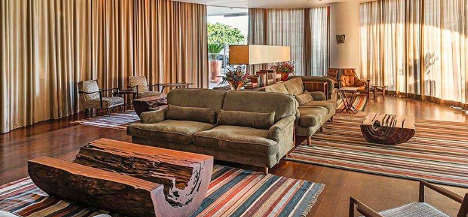Sustainability in the Furniture Industry: The Case of Tora Brasil
Sustainability is more than just a trend: it’s a necessity! In the furniture realm, the topic has been gaining traction, with companies adopting eco-friendly practices. And Tora Brasil is leading the charge in this transformation. Curious to learn more?
From "Waste" to Luxury: A Sustainable Revolution
Ever heard of luxury furniture crafted from “forest residues”? Sounds contradictory, right? But, in essence, it’s a groundbreaking notion. Hollow or twisted trees, typically seen as “flawed” and often discarded, have found a dignified purpose thanks to Tora Brasil’s founder, Cristiano Ribeiro do Valle.
Instead of viewing these trees as “disposable,” Cristiano recognized their unique potential. He realized that these “imperfections” could be transformed into unique features for high-end furniture, celebrating the authenticity and individuality of Brazilian wood.

Figure 1. Wood considered as Waste (identified by the acronym REF) that would have been destined for charcoal production, but used by Cristiano as raw material (May 2007, state of Pará)

Figure 2. Furniture made with raw material shown in figure 1 that would have been discarded – design created by Cristiano Valle
Tora Brasil: Synonymous with Certification and Responsibility
Yet, it’s not merely about repurposing discarded wood. Since 2007, Tora Brasil has been certified by the Forest Stewardship Council (FSC), underscoring the company’s commitment to sourcing wood from sustainably managed areas.
Furthermore, the company has partnered with suppliers who also adhere to eco-friendly practices. A case in point is Mil Madeiras Preciosas, which employs low-impact techniques, thereby aiding the conservation of tropical forests.
Maximum Utilization, Minimal Waste
One major challenge in the timber industry is waste. Traditionally, a significant portion of wood gets discarded due to defects or imperfections, leading to rather low yields. But what did Tora Brasil do? They flipped the script!
Instead of the industry’s average yield of 30%, as indicated by INPA’s research, Tora Brasil boasts a staggering 67.7% when converting raw logs into furniture. This means fewer trees felled, reduced waste, and greener furniture pieces.
Conclusion
Choosing a piece from Tora Brasil isn’t just opting for innovative and authentic design. It’s also making a mindful choice, supporting practices that champion conservation and sustainability.
It stands as a shining example of the evolution possible within the furniture industry, demonstrating that luxury and sustainability can indeed walk hand in hand. And at the end of the day, our planet is all the better for it!
CONTACT
Tel +55 (11) 94745-1576
Rua Afonso Garbuio, 171
Santa Claudina – Vinhedo- SP
CEP 13.284-486
contato@torabrasil.com.br
CONTACT
Tel +55 (11) 94745-1576
Rua Afonso Garbuio, 171
Santa Claudina – Vinhedo- SP
CEP 13.284-486
contato@torabrasil.com.br